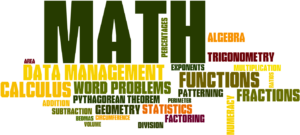A recent late Middle School transfer recently described the difference between Math at Acton and a traditional school: “At my old school, we learned one type of problem at a time. Once you knew how to repeat the steps, you did twenty homework problems on a worksheet that were exactly the same.”
He continued: “At Acton, Khan makes us do way more types of problems, and they come in different disguises, so you can’t repeat the same steps over and over again. You have to get five in a row right to master a skill, but you see the steps in a different order or have to re-learn a problem you solved a long time ago.”
Khan Academy Math has over 1200 skills; traditional Math with a teacher can lead students through only a small subset of these. So that’s the choice: a fraction of the procedures learned by rote or hundreds of skills of different types, presented in different ways, learned peer to peer.
Certainly there’s a sense of satisfaction that comes from parroting procedures correctly, but neither Khan nor traditional schools seem to deliver deep critical thinking skills. Clark Aldrich, author of Unschooling Rules and simulation guru, believes Khan Math is just a faster buggy whip — in a time when horseless carriages soon will drive themselves.
Aldrich believes there are only thirty or so important math concepts and that all can be mastered in Excel or Google Sheets. That’s why we’ve engaged Aldrich to diagram the thirty challenges so we can incorporate them into Quests.
Of course, then Eagles and parents will have to decide to master Differential Calculus on Khan, or choose something most people will use in the real world.
